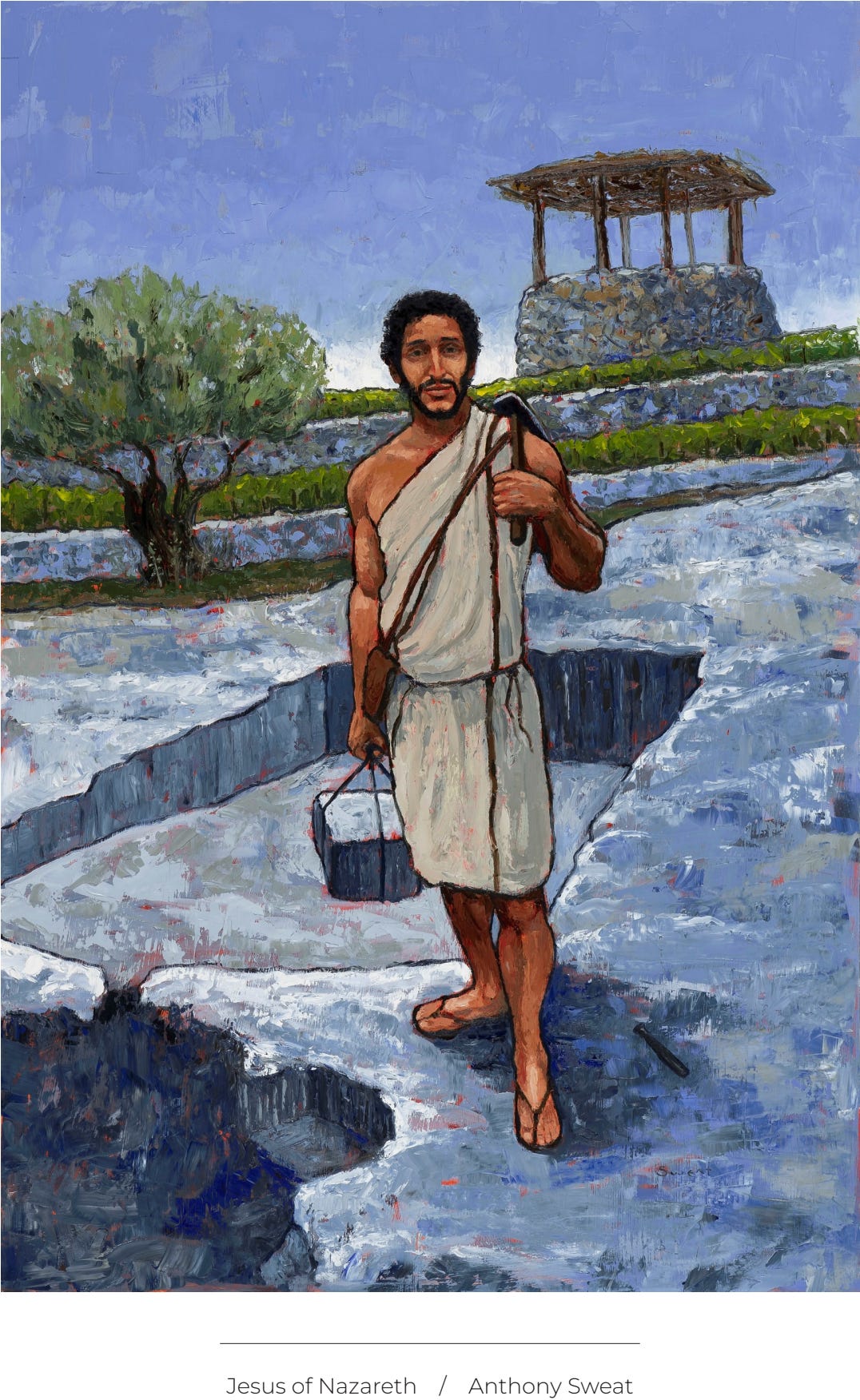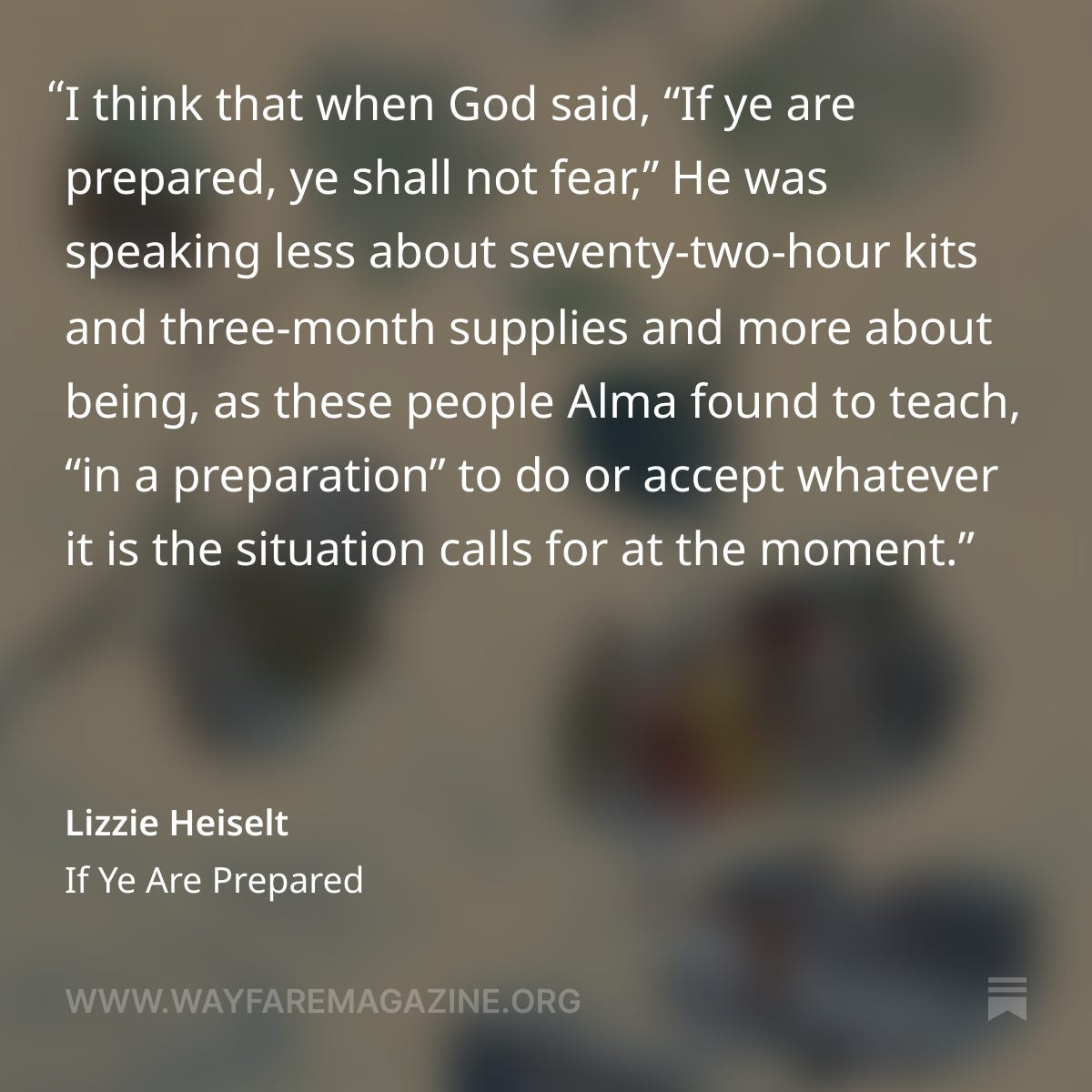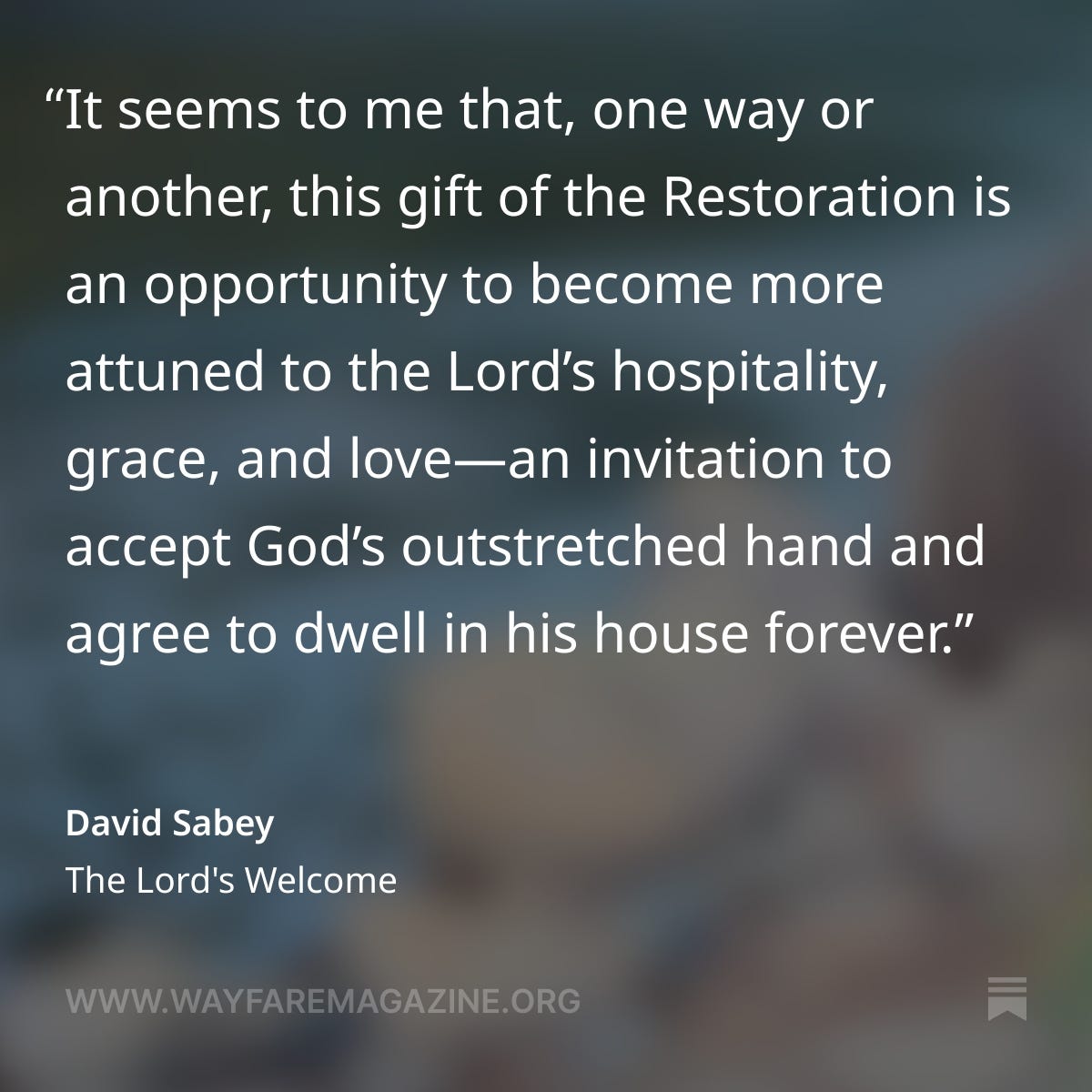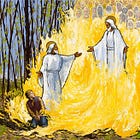What does it mean to prepare for the Second Coming of Christ? Is the project of the restoration Zion, or exaltation? Can it be both?
Faith Matters resources to accompany your Come Follow Me study: November 17-23
Jesus Christ calls me to reject Babylon and come to Zion. The Lord wants me to stay away from the evil in the world.
From a transformative perspective, worldliness is any attempt to find security through finite means—safety, pleasure, the esteem of others, and the insatiable need to control our circumstances. The gospel invites us to leave this worldliness behind and find security in the only Reality that is worthy of our hearts. We are not sanctified by perfecting the false self but by waking up to an entirely new dimension of self, whose center of gravity is Christ.
—Thomas McConkie, At-One-Ment (read an excerpt here)
The idea of “Zion” is not unique to The Church of Jesus Christ of Latter-day Saints, but the Book of Mormon and modern revelation sharpen our image of what it can, and should, be. Zion is not just the millennial community that greets the Savior upon His return and lives with him in peace for a millennium. Zion should come now. Zion is a physical place and a figurative community. Zion is a place of diversity and peace. In Zion, we have everlasting joy.
—Samuel Benson, “A Zion for All of Us”
Jesus Christ will come again. I can prepare now for the Savior’s Second Coming.
In my mind, the counsel to be prepared must be about living in such a way that when we find ourselves in any situation, we feel that it is exactly what we have been living for, that this is just where we want to be. Like the little jar of “prepared horseradish” I keep in my fridge and sometimes mix into the filling for a supper pie or smear on a baked potato, where it adds contrast and life to the most basic of meals. The flavor and the heat also recall the many trips my family took to Arby’s when I was a child, where the salty meat sandwiches were tamed and elevated by the addition of a squeeze of creamy Horsey Sauce from little plastic packets. The sauce stands by, waiting for its moment, and boldly steps in to enliven any meal. It was prepared for just such a thing. …
Can we … develop societies that are practiced in supporting each other through the daily wear and tear of living in the world? If we can do that, we can be truly prepared for anything. We can bring peace to ourselves, our communities, our world. We can share meals with the families managing the postpartum transitions and intense cancer treatment schedules, and we can also share more moments sitting on the porch listening to children playing, watching for signs of stress, and shouldering the burdens of everyday life and earthly relationships together. Developing those connections creates a network of strength so that the inevitable internal, individual trials are not catastrophic.
—Lizzie Heiselt, “If Ye Are Prepared”
Is the project of the restoration to find and shepherd the elect of God to exaltation in the next life? Or is it to create a Zion community here that strives to include those on the margins, the way Jesus ministered? Should it be one or the other?
“The twin projects of Mormonism are Zion and exaltation. It’s about creating communities here on this earth in which there’s no male or female, or rich or poor, or bond or free, or Jew and Gentile; we’re all one in Christ… And, we’re never going to solve all the problems in this life. It is why we have a lively hope in life in Christ after we die. It is why we look forward to the resurrection because we know that that’s when Christ will wipe away all our tears. And so we keep Zion and exaltation together and we do both projects at the same time.”
—Patrick Mason, “Who is the Church for?”
The Second Coming of Jesus Christ will be joyful for the righteous.
The challenge for the believer is that the prospect of eternity can detract from full attention to the moment. The prospect of life as something to get through, to endure, to devalue, has long been a pronounced strand in Christian history. It was not always that way. Before asceticism and other-worldliness took hold, Christians were alert to the “nowness” of heaven. “Let us love the present joy in the life that now is.”
—Terryl Givens, “Our Ongoing Resurrection”
Christ’s Way, Christ’s Love, is as universal as stardust, wind, and sunlight. There is liberty in this universal scope of atoning love. While I am no Universalist in the non-Mormon sense, the Atonement of Love sees beyond salvation to the actual saving beauty that animates it. When we fret about whether we’re saved, we turn the story of our lives inward, following the modernist script of isolated consumers pleasing and perfecting themselves. With the Atonement of Love, we turn the story of our lives outward. Christ says “I’ve got salvation figured out for you. I bathe you in my love. Now I need you to be vessels of my love and grace. So, you poor broken thing, go shed forth my love in the world.” The shift from pious narcissism to Christian agape is the path that the Atonement of Love makes possible.
—Samuel Brown, “The Atonement of Love”
A journaling invitation from At-One-Ment, by Thomas McConkie: “What if this very body, this very world were already heaven? Rather than relating to this life as a test to get somewhere better, what if you treated this very moment as the better place you were hoping to get to? You’ve already arrived. This is it. How would you act differently if this were the case? In what way do you start to perceive things differently when you take this to be true?”
Jesus Christ is loving and kind.
Two figures emerge from the fire, one of whom calls the young boy by his personal name—Joseph. In the articulation of his name, the shaken boy hears himself called by a divine voice of absolute love—a voice which never anger speaks, nor malice, unkindness, disrespect, judgment, nor blame—for God is incapable of feeling anything but absolute love toward the children struggling to gain a foothold on this bewildering planet. The voice uttering words of peace, joy, gentleness, kindness, and solace to Joseph and to each one of us, is the voice of God Almighty.
Joseph walked into the grove to address a God sometimes described as vengeful and violent in the biblical text and in Milton. The God he encountered, however, was full of love and compassion and mercy—just like His Son. This changed the entire trajectory of Joseph’s life, I believe. As a result of this encounter Joseph wrote that it was absolutely imperative that each one of us obtain “a correct idea of God’s character, perfection, and attributes.”
—Fiona Givens, “Can we trust and worship the wrathful God of scripture?”
“Governments were instituted of God for the benefit of man.”
In Church of Jesus Christ of Latter-day Saints scripture, the U.S. Constitution is specifically named as divinely inspired; and in church doctrine, the Constitution’s underlying principles were decreed by God not only for Americans but for all God’s children. “I see divine inspiration in the vital purpose of the entire Constitution,” Oaks told the general conference. “We are to be governed by law and not by individuals, and our loyalty is to the Constitution and its principles and processes, not to any office holder. In this way, all persons are to be equal before the law.”
—Jonathan Rauch, “Latter-day Saints Can Save America”














